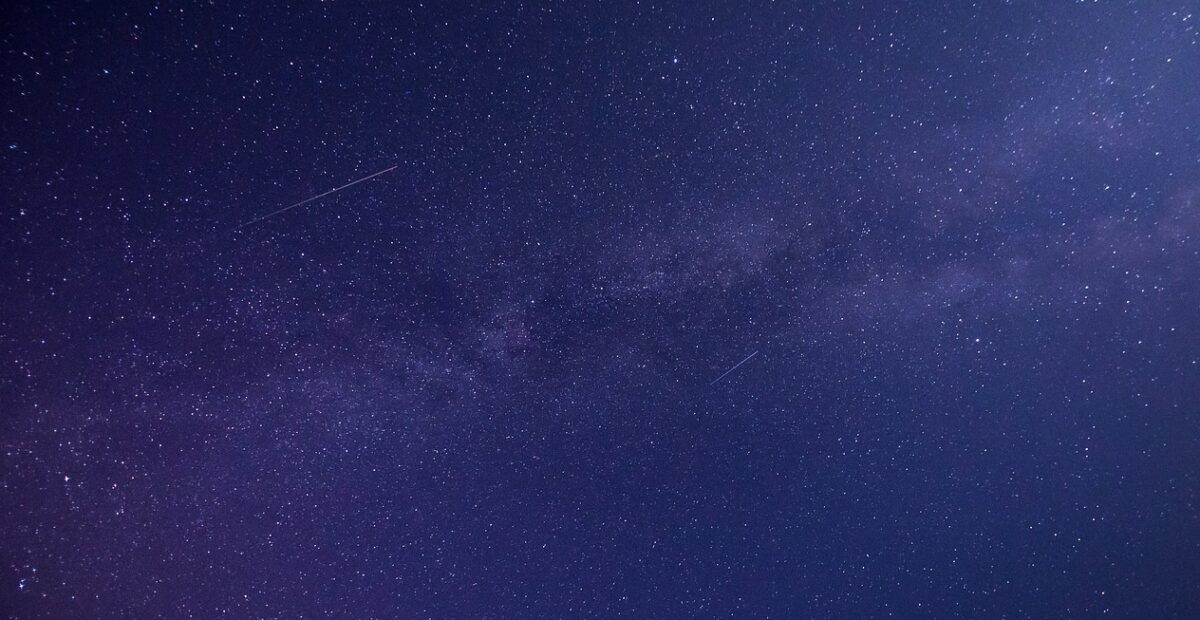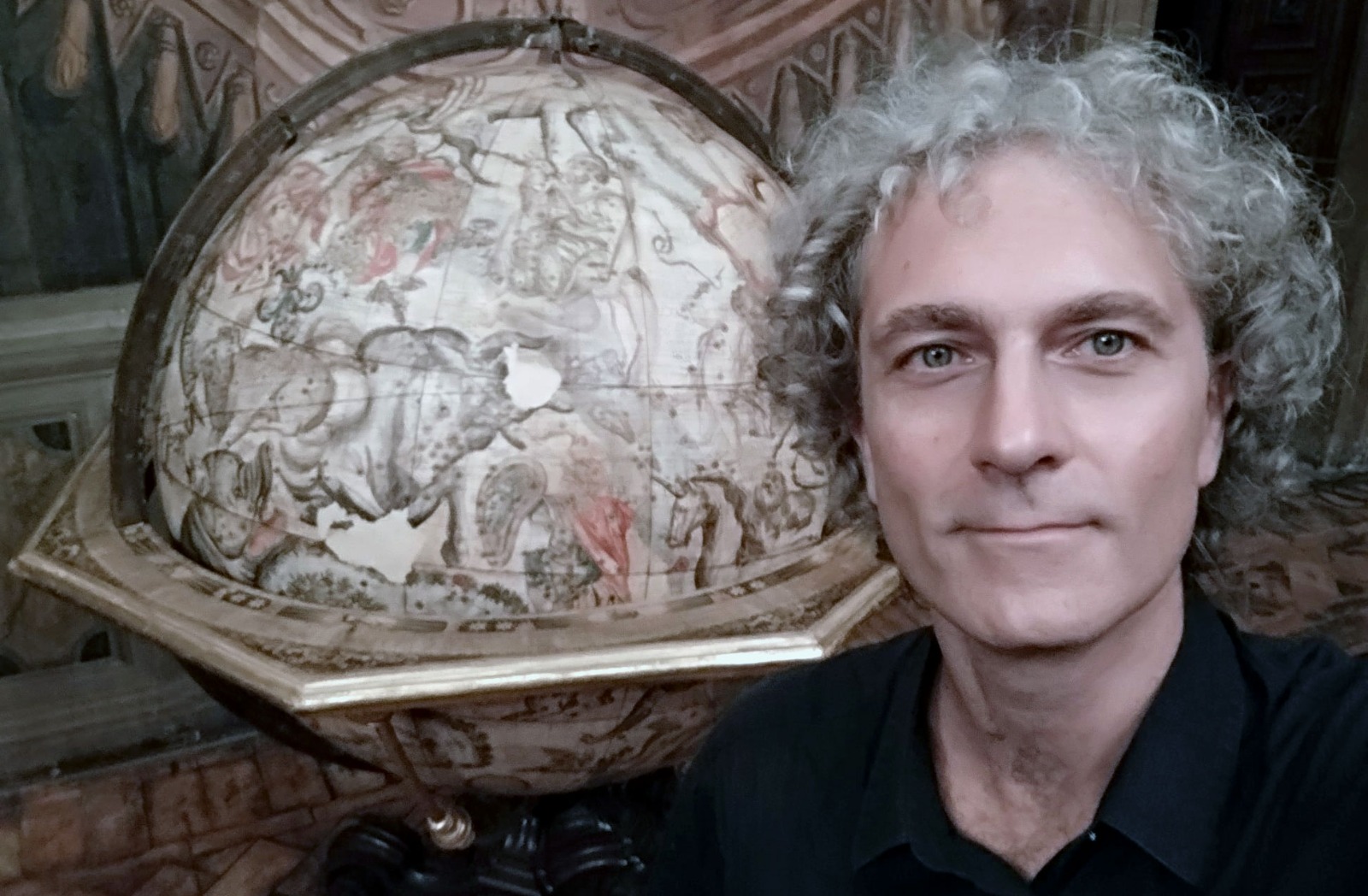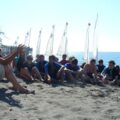
Watch
“We are the children of stars” | Inteview with Stefano Giovanardi

“Let’s turn our gaze skywards”, as the saying goes, on the night of 10-11th August, known as “the night of San Lorenzo”, when, according to legend, we can see shooting stars more clearly and in greater number.
Whether 10th-11th August, or some other date is best for admiring the stars, it’s a great opportunity to speak to Stefano Giovanardi, astronomer and scientific director of Planetario e Museo Astronomico di Roma (The Planetarium and Astronomy Museum in Rome).

A simple way to remember that stars are part of us! Stefano certainly knows all about this. His years of study and research began with a book given to him by his Uncle, that ignited a passion which was eventually to lead him to the discovery of a new asteroid, exactly 30 years ago, in August 1994, together with Maura Tombelli, one of the greatest amateur astronomer in Italy, and another astronomer, Andrea Bottani: “The most exciting gift the skies have ever given me was sighting one of these tiny ‘near-earth’ planets that whiz past, so close to our planet, that they sometimes bump into it; we realised we may have sighted something potentially significant, so we kept track of this pinpoint of light all night long. Not until the next day, once we had transmitted the data to Minor Planet Center, did we receive confirmation that it was a new asteroid, that today is dedicated to Luciano Tesi.
We often use expressions such as ‘having one’s head in the clouds’, meaning living in a bit of a fantasy, detached from reality. Is this true, or is there more to it?
“Studying the stars can seem like a way of escaping reality, getting lost in things remote from daily life firmly rooted on the ground. But astronomy also has a social element which we see in the ways that it has permeated our culture down the centuries, such as the familiar expressions you mentioned, referring to the stars; the very word ‘familiar’ means that we share something in common. Astronomy science – the study of the skies and celestial phenomenon – often causes us to reflect on things happening on earth from a completely different perspective; immersed in our daily affairs and quarrels, it is difficult to have this objective view of our behaviour, concerning social justice, politics or ethics.
Let’s take the climate crisis, for example, potentially devastating, yet we still have not mobilised our resources to the best of our ability to combat it. If we look at the earth from space, our impact on the environment is clearly visible; it’s enough to ask the astronauts on the space station; they see the smoke from the fires in Amazonia, Canada Australia, as well as many other environmental disasters that are far more than simply natural or meteorological phenomena, because they are happening with greater frequency and intensity due to human activity. Therefore, looking at things from far-away, having ‘one’s head in the clouds ‘(in the stars), can help us to see reality through a different lens. The climate crisis affects everyone; if we understand and share this emergency, acting together can be an enormous force to help tackle it; right now, we are now completely failing to safeguard the survival of the human race, because we act in an extremely divided manner”.
Franco Malerba, the first Italian astronaut, said that from space, we see that we are much more connected than we realise. Would you agree? Do stars help us in our understanding that as people, as human beings, we are connected?
“Looking at Earth from space is definitely one of those experiences that can alter your feelings and perceptions, even your whole life. Every astronaut who has returned from space will tell you what it is like to see the earth from above; Yuri Gagarin was the first to have the privilege of this extraordinary gift and the first thing he said was that you see no borders; such a powerful observation in terms of re-evaluating human relationships; you see the entire earth below but without any borders; they are a man-made invention, one of the strangest if you think about it, because they seem to imply that we cannot live without surrounding ourselves with something, an enclosure that says “this is mine, this is yours; I’m here, you’re there” and perhaps we even go to war for the sake of boundaries, to defend them, to prevent others from trespassing. Yet they do not exist, so we are going to war for something that does not exist”.
Should we be full of gratitude for the stars? How do you suggest we observe them at this time?
“Yes, it is important to be thankful for stars; we can do this in different ways; by the very fact that every evening they give us the possibility of contemplating the wonder of the universe; just by their presence, they delight us with their beauty and colour and movement, even without knowing much about them; but we can be thankful at a deeper level too, because we owe our existence to them; we are literally wearing the chemicals they contain, the tissues of our bodies contain their particles; for example the calcium which keeps our bones rigid was created from Supernovae explosions; Supernovae give us the iron in the haemoglobin present in our blood; and the phosphorous present in our DNA. Stars that have exploded and continue to explode produce nuclear reactions which disseminate chemical elements into space, which have been generously shared with everything that came afterwards, including ourselves. So, when we enjoy the delights of star gazing, it’s as if we are greeting our astronomical parents! And they are saying “look, it’s up to each one of you to protect the earth we have passed down to you. Instead, we give the stars very little thought in everyday life, yet they are a constant reference for us to draw upon, not so much to escape, but to find new perspectives and ways to think differently about our lifestyle. So, my advice is, look up at the stars, enjoy their light, because they have much to teach us”.






